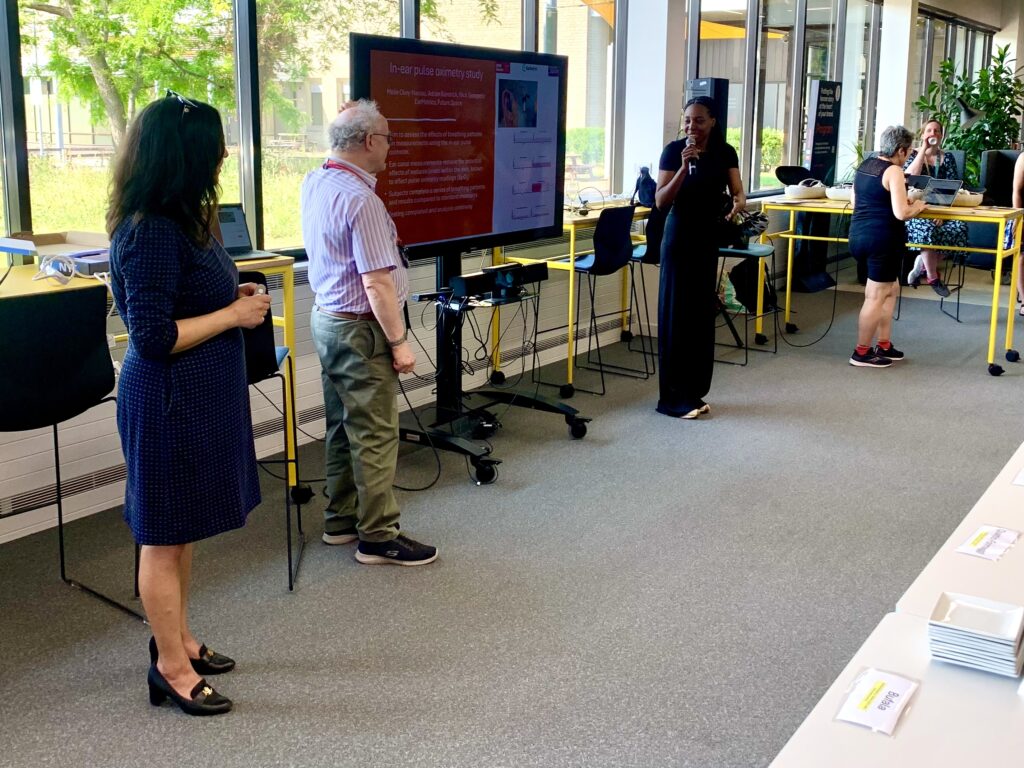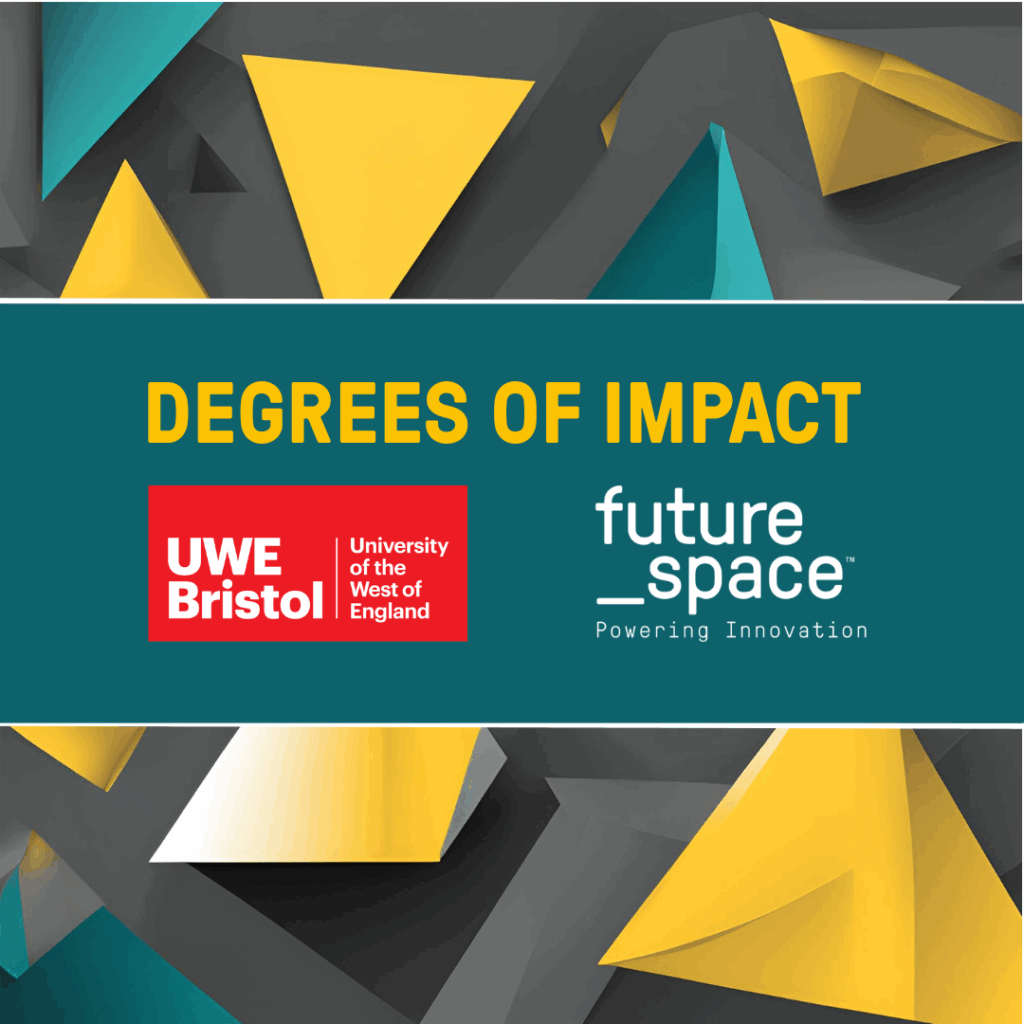Collaboration between universities and businesses has moved beyond being a “nice-to-have.” It’s become essential – for both sides. At the School of Applied Sciences at UWE Bristol, student-led research projects developed with the businesses based at Future Space are proving how these partnerships drive innovation, address real-world problems, and offer meaningful experiences for everyone involved.
By blending academic expertise, entrepreneurial insight and student talent, Future Space nurtures not just opportunity for UWE’s students, but rich, well-supported collaborations that drive tangible breakthroughs for our companies, from healthcare to sustainability. Below are two powerful case studies showing this model in action.

Case Study 1: Rethinking pulse oximetry – an ear for innovation
A chance encounter turned into a pioneering healthcare research project at UWE, driven by a multidisciplinary team including student Melie Okey-Nwosu, respiratory expert Adrian Kendrick, and entrepreneur Nick Gompertz from EarSwitch, based at Future Space.
The innovation challenge at the heart of the collaboration? Traditional fingertip pulse oximeters often give inaccurate readings for individuals with higher levels of melanin in their skin – a significant issue brought to light during the COVID-19 pandemic. “If you have a high melanin level in your skin, pulse oximetry doesn’t work,” explains Adrian, a former NHS respiratory and sleep scientist. Nick’s innovative response was an in-ear pulse oximeter, which takes measurements from the ear canal – an area far less affected by skin pigmentation – offering more accurate and inclusive oxygen saturation readings (SpO₂).
The aim of the collaborative project with the School of Applied Sciences was to assess the effects of different breathing patterns on oxygen saturation measurements using this in-ear device. Melie, the student researcher, played a vital role by designing and conducting a controlled study involving 18 human subjects. Each participant completed a series of computer-generated breathing patterns, with data collected from both the in-ear sensor and standard fingertip devices for comparison.
As Melie described it, “We can do it with the finger, but in the ear, it makes it so much easier. Honestly, it has been a great process working with the EearSwitch team as well as my academic supervisor, Adrian.”
With testing completed and analysis underway, early results are promising. This collaboration exemplifies how student-led research, academic expertise, and industry innovation converge seamlessly at Future Space to develop practical, equitable healthcare solutions – in this case, with the potential to redefine how respiratory monitoring is done.
Case Study 2: Turning battery waste into greener fertiliser
In a separate initiative, a student partnered with NPK Recovery, another trailblazing company based here at Future Space working on ways of turning urine into fertiliser, to explore an innovative use for recycled battery waste: sustainable fertiliser. This project, again in partnering with UWE’s School of Applied Sciences, offered a deep dive into environmental science, product development, and applied research.
Working alongside NPK Recovery’s Olivia, the student investigated the properties of the recycled fertiliser, focusing on nutrient release, heat transfer, and greenhouse gas emissions.
“This project has been a great opportunity to apply my technical skills in a new setting,” the student shared. “It also gave me insight into agri-research and supported innovation in industry.”
The partnership delivered dual benefits: the company gained valuable data to help refine its product, while the student developed research skills in sustainability – a growing area of global importance.
Why these collaborations matter
From advanced healthcare technologies to breakthroughs in green innovation, these projects exemplify how academic inquiry and industry needs intersect to produce practical, forward-thinking solutions. It also demonstrates how Future Space, working at the cutting-edge of university-partnered innovation, is at the forefront of making this work happen. For students, it’s a chance to bridge theory and practice. For businesses, it’s an opportunity to tap into fresh thinking and contribute to workforce development.
As Senior Lecturer Lily Ordonez put it:
“We don’t always fit neatly into boxes, and neither do our students or research. Collaboration allows us to find where industry goals and academic inquiry intersect – often in the most exciting and impactful ways.”
Whether through structured Masters programmes, MRes placements, or serendipitous connections, Future Space and UWE are together building a seamless collaborative ecosystem that benefits all sides – academia, industry, and the student experience.
Interested in getting involved?
If you’re a business looking to co-create innovative research opportunities with talented students and expert academics, get in touch with us today to explore how we can help.
Your next breakthrough could start with a conversation.
